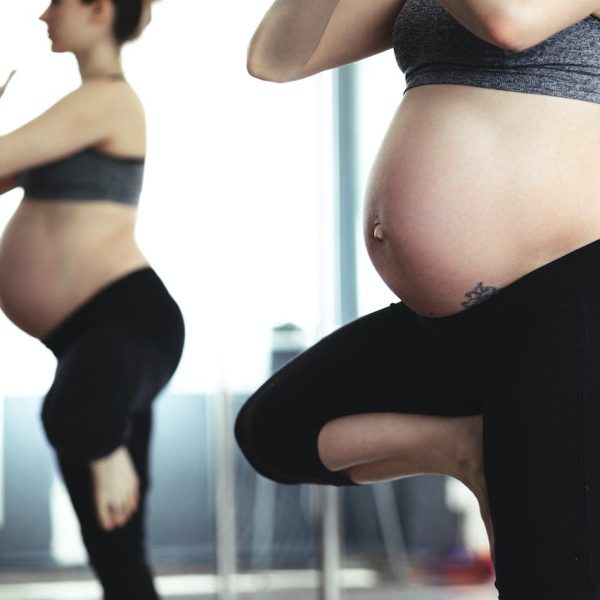Prenatal nutrition is vital for the healthy development of a baby, and an essential part of that is making sure you’re getting enough Vitamin D. But why is Vitamin D so important? In this article, we’ll explore the reasons why mom and baby need to get ample amounts of this nutrient during pregnancy – and how it can benefit both in the long run.
What is Vitamin D and its Benefits?
Vitamin D is a fat-soluble vitamin that plays a critical role in bone health, immune function, and cell growth. Although our bodies can produce vitamin D from exposure to sunlight, many people are deficient in this important nutrient.
Pregnant women and young children are especially at risk for vitamin D deficiency, as their bodies are not able to produce enough of the vitamin on their own. This can lead to serious health problems, including Rickets (a condition characterized by softening and weakening of the bones), impaired immune function, and increased susceptibility to infections.
Supplementing with vitamin D during pregnancy can help ensure that both mother and child get adequate levels of this vital nutrient. Vitamin D supplements are available over-the-counter, and many prenatal vitamins also contain vitamin D. Be sure to talk to your healthcare provider before starting any supplement, as too much vitamin D can be harmful.
The Role of Vitamin D During Pregnancy
Vitamin D is essential for pregnant women and their babies. This vitamin helps the baby’s bones and teeth develop and grow properly. It also helps regulate calcium and phosphorus levels in the body, which are important for pregnant women. Vitamin D is found in food sources such as fish, eggs, and dairy products. However, most people do not get enough of this vitamin from diet alone and need to supplement with it. Pregnant women should take 400 IU (international units) of vitamin D per day.
Sources of Vitamin D During Pregnancy
There are several ways to get vitamin D during pregnancy, and the best way is through exposure to sunlight. However, if you are not able to get enough sun exposure, there are other options. You can take a supplement, which is recommended by many doctors, or you can get vitamin D from certain foods.
Some good sources of vitamin D during pregnancy include:
-Fatty fish such as salmon, tuna, and mackerel
-Egg yolks
-Fortified milk
-Fortified cereals and orange juice
-Mushrooms

Recommended Intake for Vitamin D
Assuming you are referring to Vitamin D3, the recommended intake is 600 IU/day for pregnant and lactating women. This is higher than the 400 IU/day recommended for adults, due to the fact that pregnant women need more vitamin D to support their growing baby. Vitamin D is essential for prenatal nutrition because it helps the body absorb calcium, which is important for the development of strong bones and teeth. Additionally, vitamin D has been shown to reduce the risk of preterm birth and improve pregnancy outcomes.
Potential Health Risks from Lack of Vitamin D during Pregnancy
Vitamin D is essential for pregnant women and their babies. A lack of vitamin D can lead to health risks for both mother and child, including:
Pregnancy and birth complications: Vitamin D deficiency has been linked to an increased risk of preterm labour, preeclampsia, and gestational diabetes.
Bone problems: Vitamin D is essential for healthy bones. A lack of vitamin D can lead to osteoporosis, which can increase the risk of fractures during pregnancy.
Muscle weakness: Vitamin D deficiency can cause muscle weakness, which can make it difficult to carry a baby during pregnancy.
Heart disease: Vitamin D deficiency has been linked to an increased risk of heart disease.
How to Get Enough Vitamin D When You’re Pregnant
The best way to get enough vitamin D is by exposing your skin to sunlight. However, if you’re pregnant or breastfeeding, you should take care not to over-expose yourself to the sun, as this can increase your risk of developing melanoma.
For pregnant women who don’t get enough sun exposure, the American College of Obstetricians and Gynecologists (ACOG) recommends taking a daily supplement of at least 400 IU (international units) of vitamin D3. You can also get vitamin D from certain foods, such as fatty fish, eggs, fortified milk and orange juice.
Conclusion
Vitamin D is an essential nutrient for your prenatal nutrition and the health of your unborn baby. It helps in the absorption of calcium, which is important for healthy bones, teeth, and muscles. Vitamin D also aids in immune system development and can reduce complications during pregnancy such as pre-eclampsia. Talk to your doctor or registered dietitian about how you can get enough vitamin D while pregnant through diet, supplements, or sun exposure. Your baby will thank you!



























Share this article